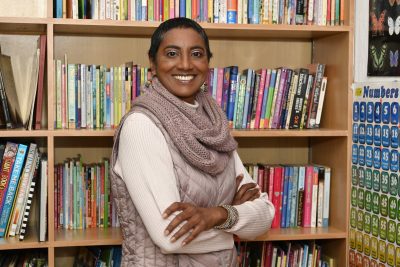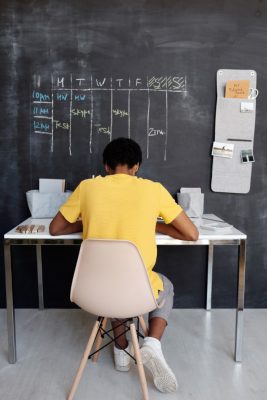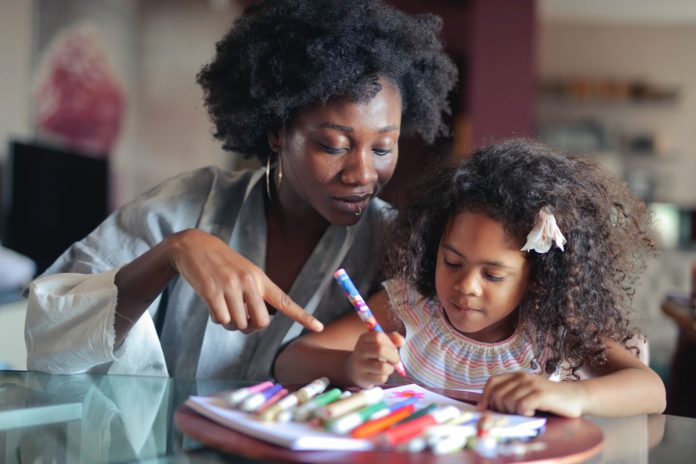As the year begins and schools start to open, we can’t help but wonder how the global pandemic has affected our children’s education. Hillcrest-based internationally experienced educationalist and director of Nkowa Education, Ponnie Moodley, shares her views on how Covid-19 has and will continue to transform education beyond 2021.
While last year was marred with tragedy and heartache, it also brought with it opportunities to transform and innovate. In particular, and through sheer necessity, in the education sector.
Actively involved in education, training, management and community development for more than 31 years, Ponnie has diverse national and international work experiences and is passionate about education and her contribution to the development of children, adults, organizations and communities in South Africa and internationally.

Opportunities for all
Ponnie believes that integrated local, national and international networking will resolve the current global challenges in education and build a high standard of integrated global community development through holistic education, a unique model she has designed to implement national and international curricula within a 21st century community context. “Covid-19 brought to the fore the inadequacies and deficiencies of all global education systems. It has amplified the existing learning inequalities of already marginalized and vulnerable communities like South Africa. This pandemic is forcing parents, educators, policy makers and researchers to redesign current global and national education systems.”
According to UNICEF, more than a billion children from 188 countries are at risk of falling behind due to school closures. Thirty-one per cent or 463 million school children cannot be reached by the broadcast-and-internet-based remote learning due to the lack of necessary technological assets at home. Thousands of school aged children within South Africa are also unaccounted for, as many of them have not returned to school since March.
“Integrated and holistic community-based education and development programmes are needed, where role players can equally contribute to the process and ensure sustainable student success. The most important element is teamwork and relationship building between vital partners by creating an atmosphere conducive to community-centred collaboration. The imbalance between lower income students and more affluent families will continue until we are able to provide opportunities for cross pollination and sharing of resources between rich and poor neighbourhoods. Access to electricity, digital devices and the internet are the new basic needs of life that bring quality education to even the poorest of our communities.”

Preparing for a new future
Ponnie urges that if we are truly going to prepare children for careers that do not exist yet, we have to place them at the front and centre of their education. Children are naturally curious, and when given the opportunity they can learn on their own and spontaneously share their skills with others. Their experiences, interests, needs, talents and career options will become the main focus of education. “Certain elements of the curriculum must be abandoned in favour of others that are concept-based, multidisciplinary and streamlined. Career and entrepreneurial based curricula will encourage collaboration between local businesses and educational institutions, which will in turn help train employees to establish small businesses, thus building our economy.”
While some countries have minimised or even abandoned assessments, current forms of assessments will be redesigned, says Ponnie. More practical methods of assessing mastery will reflect whether children can truly apply their knowledge in contexts that are reality-based. Soft skills like collaboration, creativity and communication skills will matter more than content and information. Portfolios and creative tasks will place more emphasis on critical thinking and problem-solving abilities. Peer review, collaboration and self-reflection will ensure that children are more critical and analytical of concepts presented to them.
“In the end, true mastery will matter more than the standardised one-size-fits-all written assessments. Educational institutions will extend beyond physical buildings, adopting more distant and remote means, including virtual field trips. More investment in resources, technology and digital networking will make education more accessible to children in urban and rural areas. Families will also opt for smaller, more personalised places of learning that offer alternative, innovative, unique and forward thinking education programmes, as opposed to traditional practices.”

The role of educators
Ponnie adds that educators will no longer be in the centre of the classroom, presenting information, while students remain passive, compliant receivers. Instead, they will take on more facilitating and management roles, where they will be required to plan, coach and guide students towards mastery. “They will organise opportunities for students to explore, learn and apply their skills in the field. They will be required to be more self-reflective in their practice while also seeking to keep their skills updated, where they learn and educate concurrently.”
“In a considerably short time, education has transformed from being a face-to-face experience to one of being remote and digitized. Not only is updated data readily available, but people have become instantly connected across countries and continents, making education open and resources free and readily accessible. Soon there will be little or no need for textbooks, as more updated information and data are uploaded and refreshed online. Education will be taken out of the school and into homes, where children will be able to study and complete programmes at their own pace.”

Collaboration for success
The economy and education form the main pillars of a successful society, therefore higher-education institutions, business, government and development organisations must network with local schools to offer career and mentoring opportunities for students and educators. This will improve current standards and encourage more symbiotic relationships within communities. “If anything, this pandemic has allowed us to transform education to truly meet the demands of the 21st century. Using this as an opportunity will benefit children and put them on their rightful path to success, not only in 2021 but also in the future. Working collaboratively will ensure that integrated community development through education becomes a national and global priority.”






